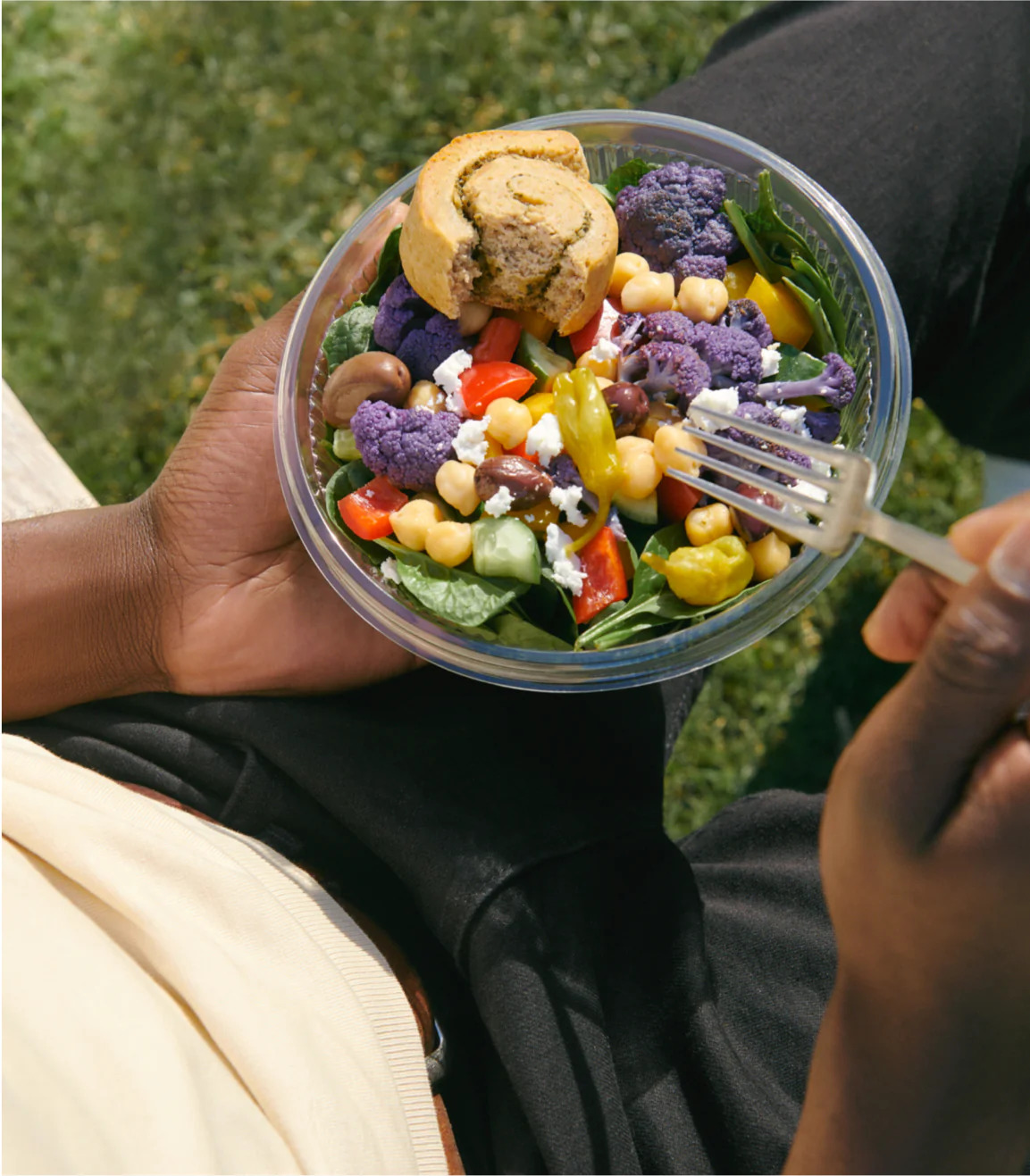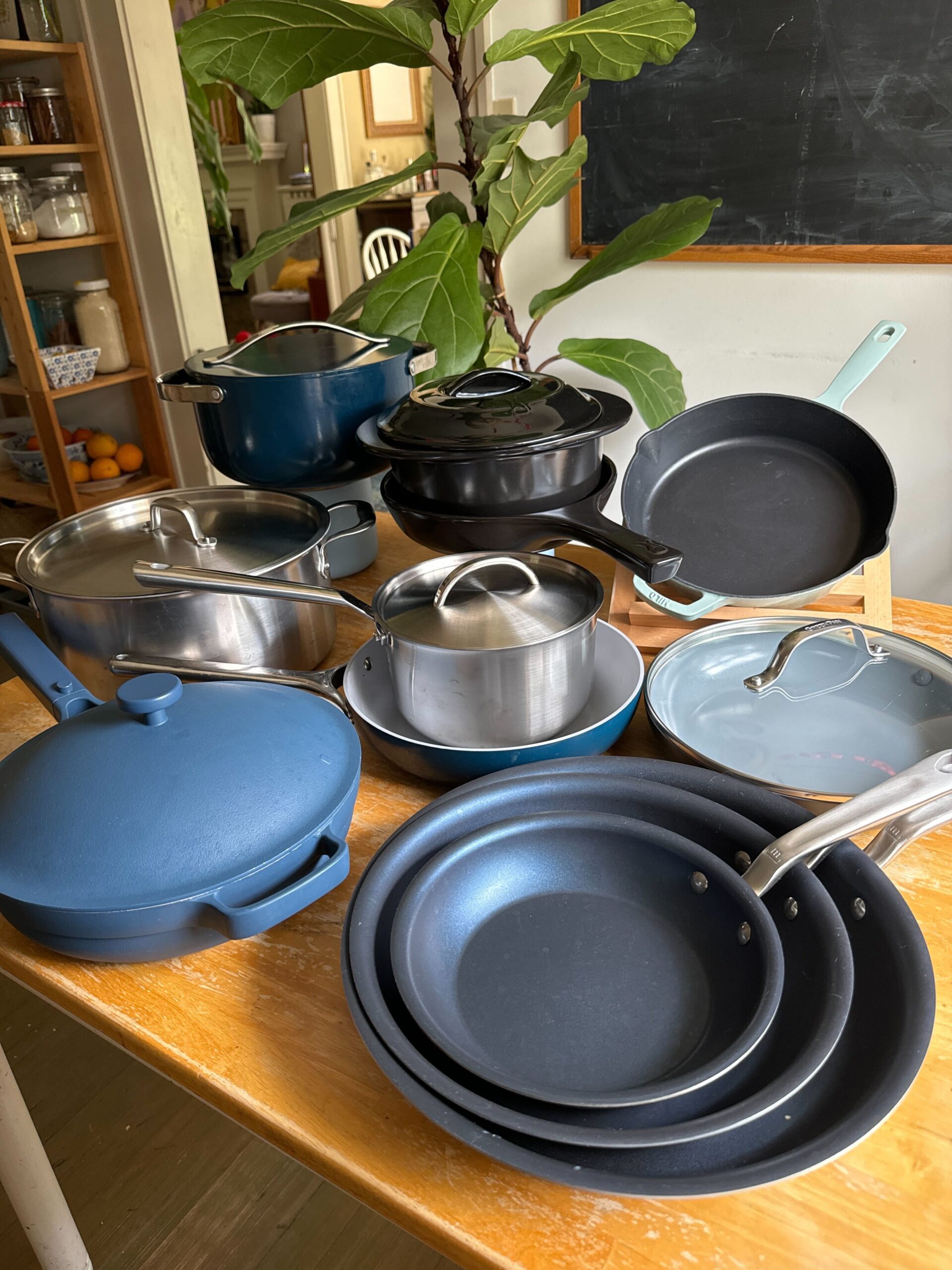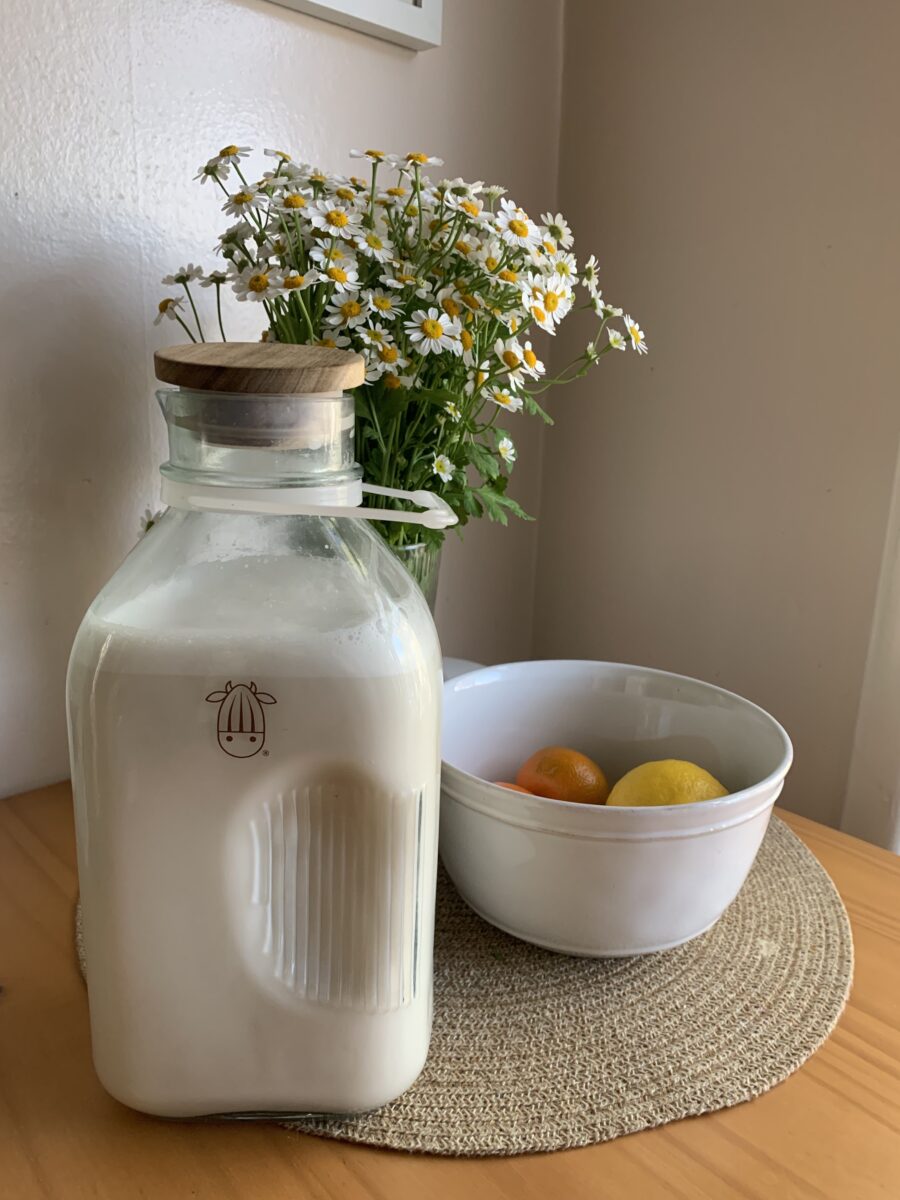
We Review Almond Cow For Oil-Free Nut Milk At Home
Growing up, we were a big milk-drinking household. It was the era of Got Milk? commercials and for dinner my father kept a gallon of 2% on the table, topping our glasses off and laughing alongside my siblings and me as we competed over who had the best milk mustaches.
It wasn’t until I was in my 20s that plant milk started hitting the market, and I explicitly remember the first time I saw non-dairy options on a coffee shop menu. I decided to give it a try. I immediately fell in love with how almond milk made me feel less bloated and added a hint of sweetness to my coffee that regular milk didn’t. After that, I slowly started adding nut milk to my diet.
Today, you can find just about any sort of plant-based milk in conventional markets and even gas stations. No more having to scour the health food store for almond, cashew, oat, or even hemp and flaxseed milk. We have options at our disposal. But with those options comes an ongoing conversation about ingredients.
Like, what’s the deal with all the additives? Are the included oils—namely sunflower oil, canola oil, and rapeseed oil—good for our gut health? What about the thickening agents? Dieticians raise some valid concerns, and I’ve always been in the camp of “the fewer ingredients, the better.”
That said, I have about as much time for milking almonds as I do for making a sourdough starter. Neither do I wish to spend $7+ on a carton of oil-free nut milk. The options are pretty bleak, so I’ve just stuck with Oatly. Until now.
I first saw Almond Cow in an Instagram ad, and I was immediately skeptical. I’ve seen friends try to make nut milk at home and it never goes over well (“too thin, too watery, too slimy”). So for a machine to claim it can make a perfect batch of nut milk in just a few minutes? And with minimal mess or ingredients? Consider my eyebrows raised. Still, I knew I had to try it.
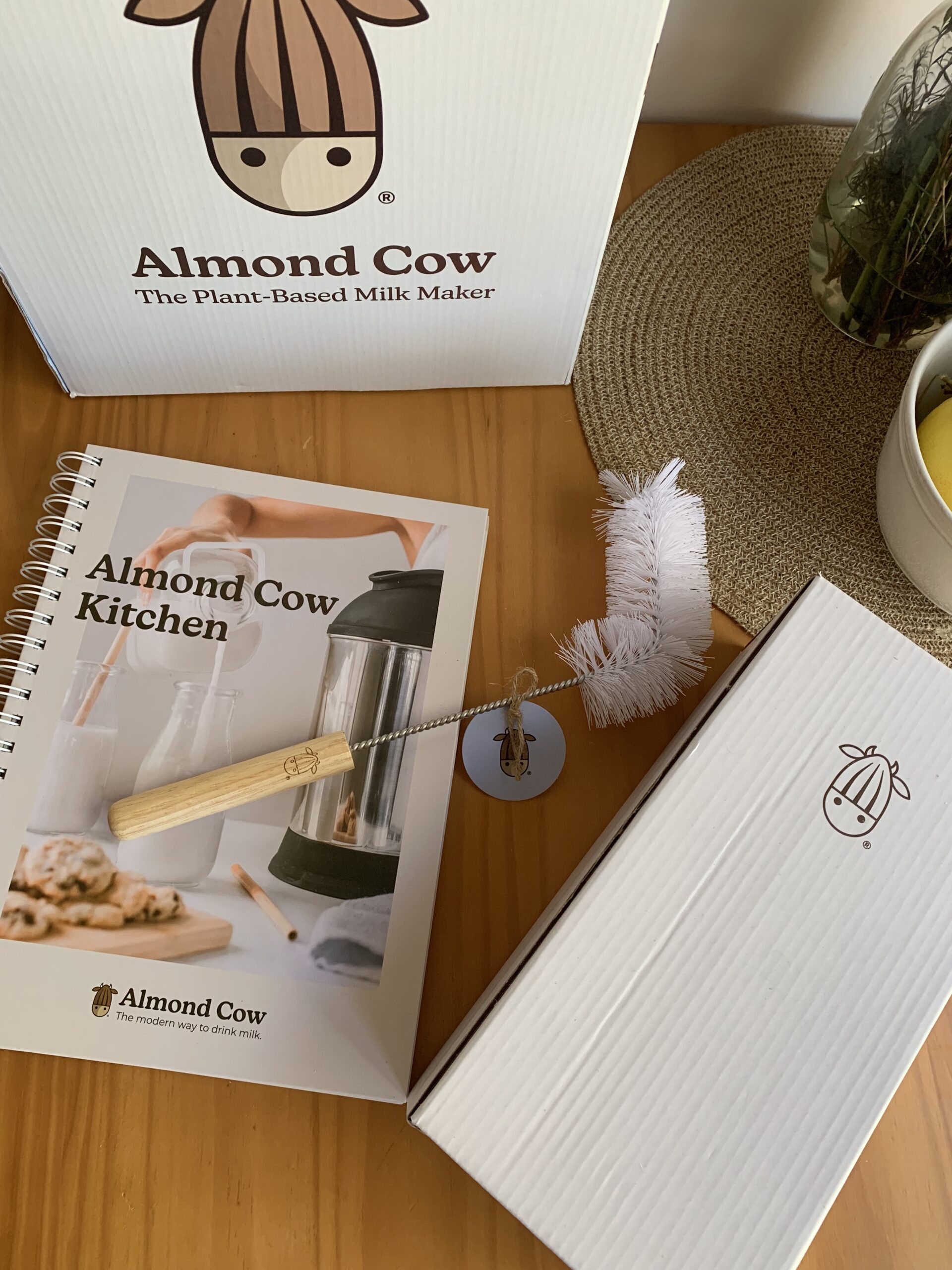
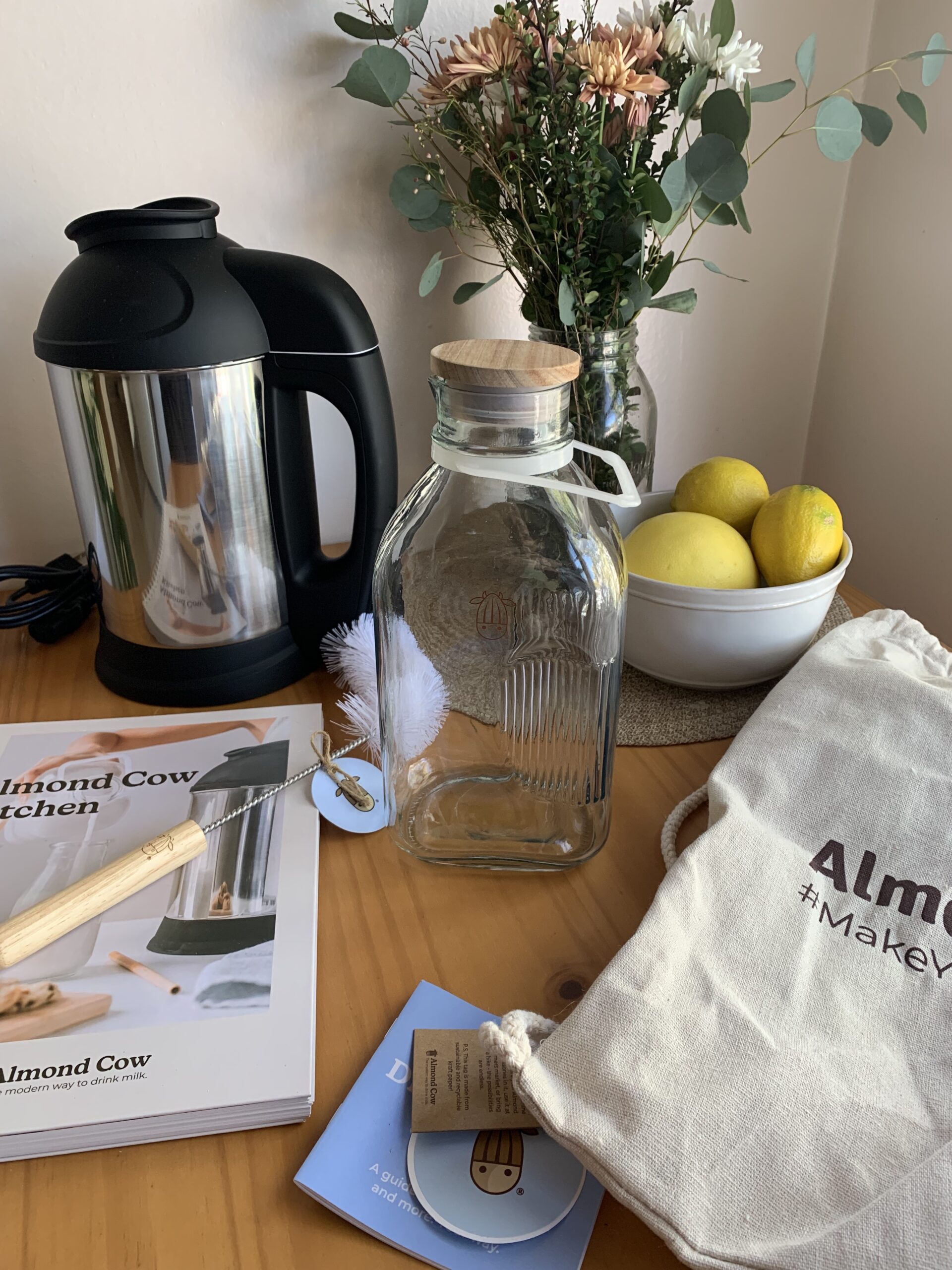
My guard began to drop as soon as my Almond Cow package arrived. I mean how would you feel if you walked out to collect the mail and found a cardboard box with a cute cow face on the side of it? The packaging was entirely plastic-free—no surprise, as the brand is on a mission to reduce waste and make it so that customers “never need to buy another carton of shelf milk.”
An added perk: everything in the box was adorable. The milk maker itself was protected by a cow-printed drawstring bag, and the jug brush cleaner came with its own cardboard cow tag. The Ultimate Starter Set I opted for also came with a recipe book, a few bags of organic starter nuts, and—my favorite, favorite item—a glass milk jug.
I made my first batch immediately. I was down to the last splash of my Trader Joe’s almond milk anyway, so it was the perfect time to try. I decided to start with Cashew Milk, using the instructed one cup of unsoaked nuts (Not a typo! No soaking required!), two chopped dates, a pinch of salt and half tsp of vanilla. These are basic pantry staples in our household, so I had everything I needed on hand. But if you do need dates or vanilla, I recommend buying in bulk from Costco to cut costs even more. Or, if you’re feeling extra crafty, you can make homemade vanilla extract.
When I tell you the instructions were fool-proof and simple—I’m truly confident my two-year-old nephew could use this thing and make a perfect batch. You simply fill your milk maker with water, place your ingredients in the cup, screw on the lid, plug it in, and press the happy cow button on top. Then you wait for a whopping minute. I set my timer just to see how quickly the little machine would go, and it took exactly 59 seconds to go from dry ingredients to perfectly frothy milk. Clean-up was a breeze. Within five minutes, I had fresh, oil-free nut milk.
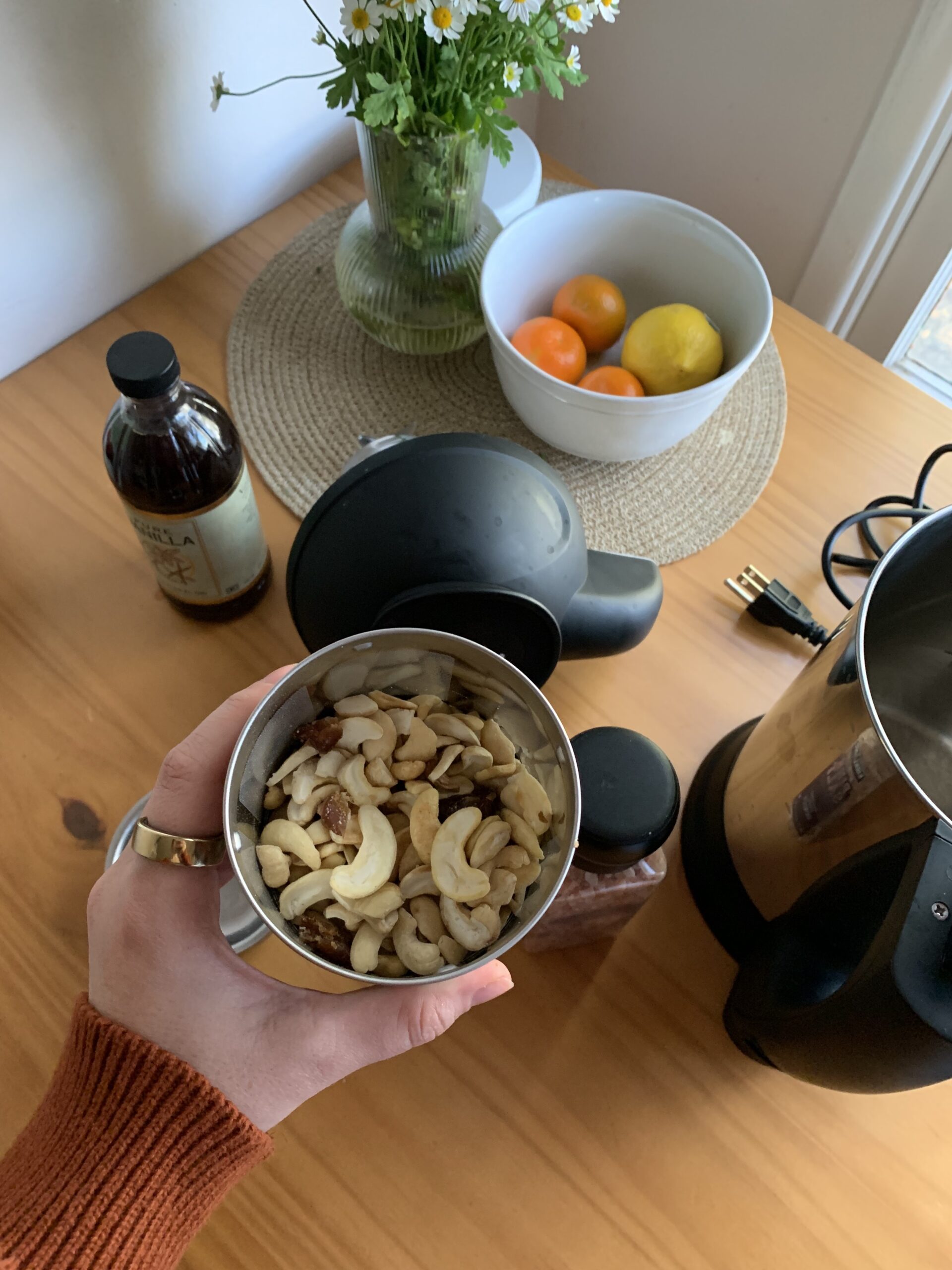
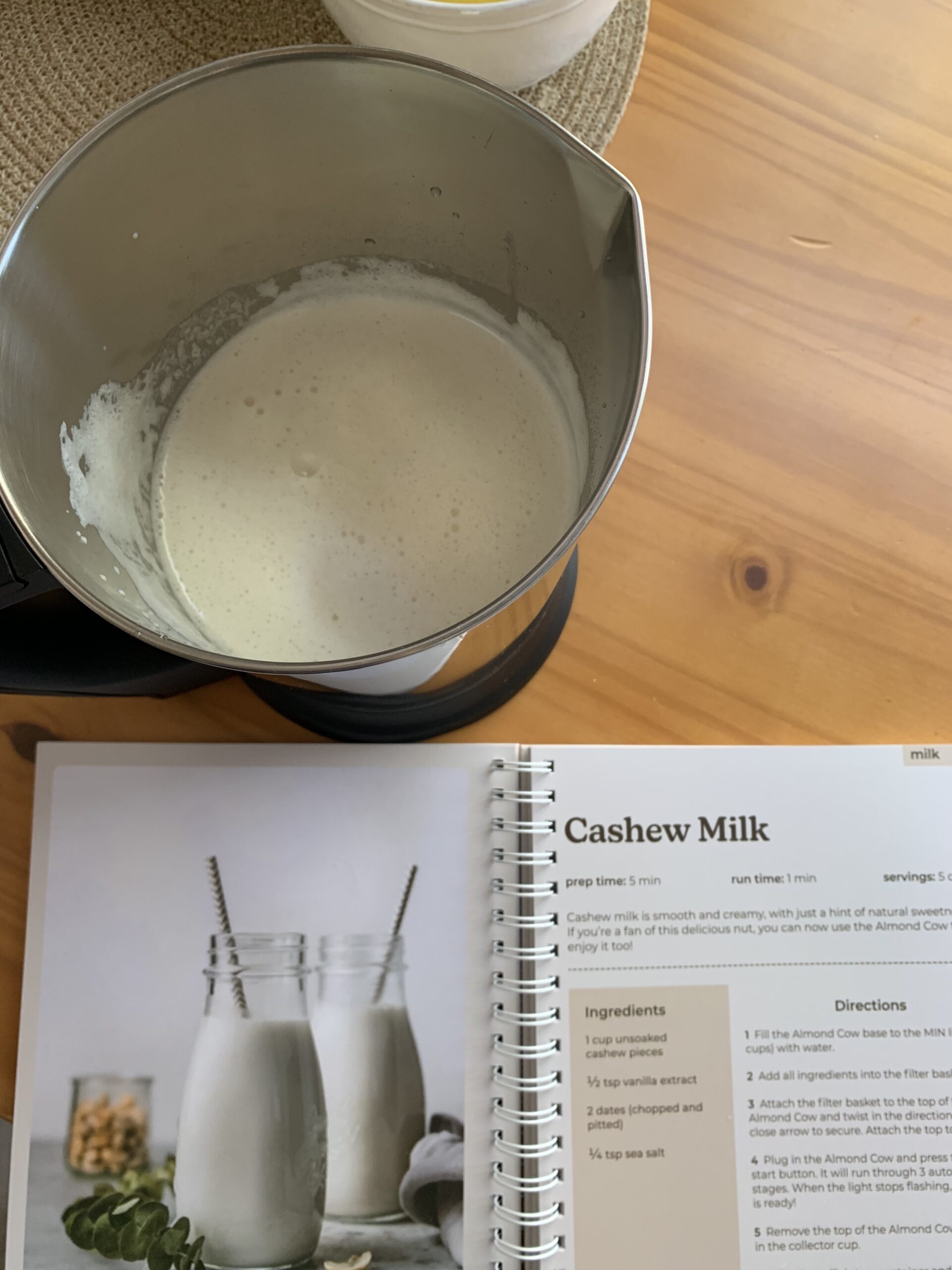
You may be wondering: Okay, this all sounds great, but what’s the cost breakdown?
An average carton of generic nut milk at the grocery store ranges anywhere from $2-$4 for 64 fl oz depending on where you live and whether you’re buying organic. With Almond Cow, the price breakdown for the star ingredient is as follows if you buy your nuts directly from the site (everything at Almond Cow is organic, Non-GMO Project Verified, and glyphosate residue free).
Almonds (3 lb bag makes 9 jugs) = $2.55/jug
Gluten-free oats (3 lb bag makes 9 jugs) = $1.44/jug
Coconut (2 lb bag makes 12 jugs) = $1.08/jug
Cashew (3 lb bag makes 10 jugs) = $2.59/jug
One jug of Almond Cow is around 48 fl oz. So comparatively, if we’re looking at the cheaper end of grocery store nut milk, this is the per fluid ounce difference:
$.03-$.06 per fluid ounce for grocery store nut milk
$.02-$.05 per fluid ounce for Almond Cow Milk
Of course, you have the dates and vanilla and the machine itself ($245), though everything can be bought in bulk, and the machine will pay itself off with long-term savings.
It’s also important to remember that you’re “getting a milk much richer” in your ingredients, explains Almond Cow, noting that most of the store milk brands are made primarily from water and additives. “Not to mention, you’ll be left with the remaining almond pulp, which has many uses.” You can read more about price breakdowns on the company FAQ page.
As for taste and consistency, I prefer Almond Cow milk to store-bought brands—yes, really. I’ve tried making both almond and cashew milk and, so far, prefer the latter. It’s silky (no grains or floating nut pieces), a tad sweet, and heats and froths wonderfully for morning coffee. While the milk separates in the jug, you simply shake it before use. It lasts up to five days in the fridge, too. I can’t imagine going back to anything else.

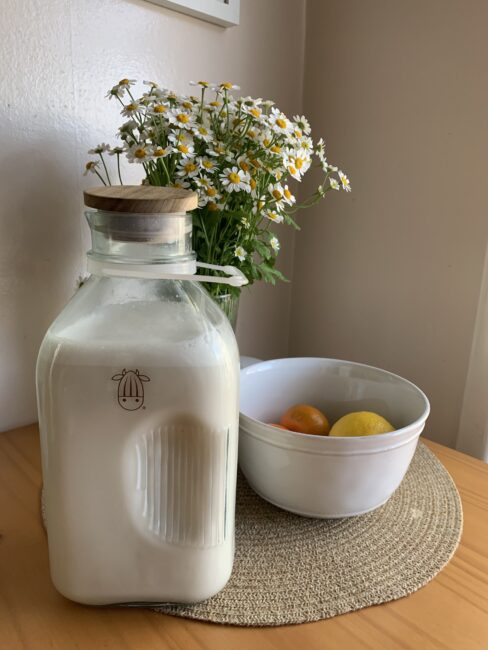
Speaking of heat, Almond Cow doesn’t use heat in making the milk, which protects the nutrients of the ingredients. Additionally, the milk maker is stainless steel, so no plastic comes into contact with the liquid. Oh, and the pulp is delicious, even though it may not look appetizing. I’ve tried it mixed into oatmeal and granola, and it adds a nutty sweetness. Zero waste, extra nutrients!
Finally—because I really could go on and on and this is the product I will go to the grave singing about—Almond Cow has a library of the most intriguing recipes, like this vegan ricotta cheese and almond pulp hummus. 🤤 I’ve only dipped my toes into what can be done with this magical machine, and I’m so excited to try some of these out.
Key Takeaways:
- Almond Cow (a former Kickstarter) is a sustainable company changing the way people drink and make nut milk. To date, they’ve saved over 1,500,000+ single-use plastics from ever going into production.
- Making a jug (around 48 oz) of milk takes less than one minute. Clean-up is simple and easy.
- Nuts and ingredients purchased from Almond Cow are organic, Non-GMO Project Verified, and glyphosate residue free.
- Cost is comparable (if not cheaper than) nut milk bought at the store.
- The milk maker can make more than milk! There are hundreds of online recipes for nut cheeses, hummus, desserts, and more.
Kayti Christian (she/her) is the Managing Editor at The Good Trade. She has a Master’s in Nonfiction Writing from the University of London and is the creator of Feelings Not Aside, a newsletter for sensitive people.



